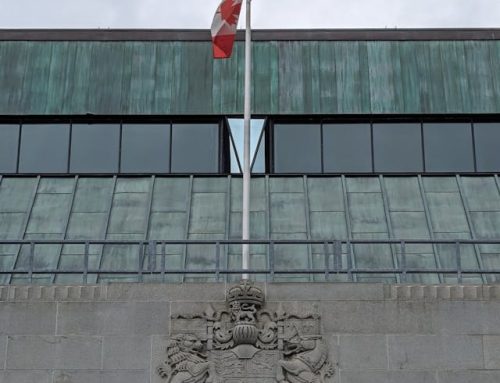Minister Was Reasonable to Deny Bonnybrook’s Request for Relief
Bonnybrook Park Industrial Development Co Ltd v. Canada (National Revenue) 2022 FC 103
Summary
Bonnybrook Park Industrial Development Co Ltd. (“Bonnybrook”) applied for dividend refunds as part of a voluntary disclosure. The Minister of National Revenue (“Minister”) refused the application. That decision was ultimately found to be reasonable by the Federal Court of Canada (“Federal Court”).
Background
This is an interesting decision replete with important principles in the context of taxpayer relief. Bonnbyrook is a private corporation earning rental income. It did not file T2 returns for the 2003-2012 taxation years. The Minister accepted Bonnybrook’s late-filed returns as part of a Voluntary Disclosure. In so doing, the Minister provided partial interest relief. The late-filed returns submitted by Bonnybrook also contained dividend refunds for the 2003-2012 taxation years. Bonnybrook could qualify for a partial refund of tax, through a dividend refund, when its income is distributed to shareholders as a dividend. One of the requirements is that the corporation file their tax returns within three years after the end of the relevant period.
The Minister disallowed the dividend refunds on the basis that Bonnybrook’s corporate tax returns were not filed within three years after the end of the relevant taxation years, as required by s 129(1) of the Income Tax Act (“ITA”) (“The 3-year filing condition”).[1]
Bonnybrook requested that the Minister extend or waive the 3-year filing condition pursuant to ss. 220(2.1) and 220(3) of the ITA. The Minister refused the request on the basis that it did not have the discretion to waive the 3-year filing condition.
Court Wranglings
Bonnbyrook applied for judicial review of the Minister’s refusal to extend or waive the 3-year filing condition. The Court decided it did not have jurisdiction to determine whether the condition could be waived and that the question should be answered by the Tax Court of Canada (“TCC”). Bonnybrook appealed that decision to the Federal Court of Appeal (“FCA”) which decided that the Federal Court did in fact have jurisdiction to decide on the applicability of the fairness provisions to the dividend refund issue.
Eventually, the file was sent back to the CRA for redetermination, who then requested documentation from Bonnybrook to support its position that the reason behind its delinquent returns involved medical issues faced by its sole director.
Bonnybrook submitted medical documentation relating to the director’s numerous medical conditions. The Minister again refused the request.
Decision & Analysis
At issue in this proceeding was whether the Minister’s decision was reasonable.
Bonnybrook naturally argued that the ITA contains many provisions which permit the Minister to relieve a taxpayer from the effects of a strict application of requirements in the ITA. Its main argument seemed to be that the medical condition of its director justified its failure to file its corporate tax returns on time or within the three-year period required in order to obtain a dividend refund. Bonnybrook argued that the Minister gave “scant consideration” to the medical evidence and submissions that had been filed.
The Minister acknowledged that the director experienced health issues but did not believe that it had been established she was unable to get the returns filed on time. A problematic fact for the Court was that the director had filed her personal and trust tax returns, made multiple payroll remittances, and filed T4 slips and summaries, during the same period.
The Court was able to trace the decision maker’s reasoning without encountering any fatal flaws in its overarching logic, and therefore there was no need to interfere with the Minister’s decision.
The Court dismissed Bonnybrook’s alternative arguments that the Minister’s decision was not in line with the FCA’s instructions, or that the Minister erred by not engaging in comprehensive statutory interpretation, indicating that it was not necessary.
Bonnybrook has not explained what the Minister’s Delegate got wrong in their interpretation of the provisions. It has not explained how the interpretation was not consistent with the text, context or purpose of the provisions at issue or whether the Minister’s Delegate’s interpretation omitted from consideration a central aspect of a proper statutory interpretation exercise (Vavilov at para 120). Instead, Bonnybrook argued in a general fashion that the failure to engage in a formal statutory interpretation exercise is what rendered the decision unreasonable. However, the Supreme Court of Canada in Vavilov explained that “[a]dministrative decision-makers are not required to engage in a formalistic statutory interpretation exercise in every case” (at para 119).[2]
[1] The dividend refund for the 2012 taxation year was allowed because the corporate tax return had been filed within the three-year period.
[2] Bonnybrook, at para. 33.



